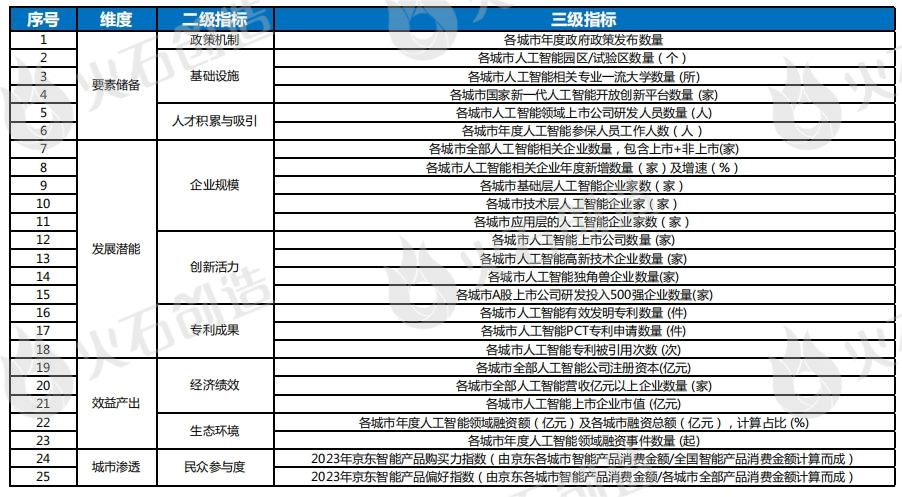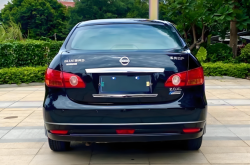Top 100 AI Competitiveness of Cities: Which One is the AI Capital?
![]() 06/25 2024
06/25 2024
![]() 503
503
Globally, China has become the largest source of AI technology in the world, with its patent applications far ahead, demonstrating China's strong strength in the field of AI technology. Domestically, China's AI industry has formed a cluster development pattern centered on Beijing, Guangdong, Shanghai, Zhejiang, and other regions.
As cities across the country compete to develop AI, it is crucial to quantitatively evaluate the development level of AI industries in cities for healthy regional competition and high-quality industrial development.
Recently, under the academic guidance of Ni Pengfei, Director of the Urban and Competitiveness Research Center of the Chinese Academy of Social Sciences, and Cao Qingfeng, a postdoctoral researcher at the Institute of Finance and Economics Strategy of the Chinese Academy of Social Sciences, TMT International Think Tank and the industry-leading industrial data intelligence service provider Spark Creation jointly released the "Report on the Competitiveness Ranking of China's AI Cities," unveiling the Top 100 in China's AI city competitiveness.
The report aims to comprehensively evaluate the development level of each city in the field of AI, providing important references and action guides for cities to formulate industrial planning, attract investment, and talent, and promoting comprehensive, balanced, healthy, and rapid development in the field of AI for each city. At the same time, it provides comprehensive market information and development references for major enterprises, helping them better formulate market strategies, make investment decisions, recruit talent, gain insights into industry trends, and strive for policy support.
01
Top 100 in China's AI City Competitiveness
The report establishes a comprehensive, objective, and quantifiable evaluation index system to assess the performance of each city in the field of AI.

The report selected 338 sample cities and compiled the ranking of China's AI city competitiveness using the equal weighting method based on comprehensive scores and sub-indicator scores. From the comprehensive index of China's AI city competitiveness, the top 10 cities are Beijing, Shenzhen, Shanghai, Guangzhou, Hangzhou, Xi'an, Nanjing, Chengdu, Wuhan, and Suzhou.

Data Source: Spark Creation Industrial Data Center
There is a relatively obvious differentiation in the comprehensive scores of China's urban AI index. Through cluster analysis, the sample cities are divided into 5 tiers. The cluster analysis results show significant differences in multiple urban development indicators among the five tiers.
Beijing ranks in the first tier, possessing high urban efficiency, penetration, development potential, and infrastructure, belonging to a comprehensive development city type. Shenzhen and Shanghai rank in the second tier, showing moderate levels on various indicators and having a certain development foundation in multiple dimensions. Guangzhou, Hangzhou, Xi'an, Nanjing, Chengdu, Wuhan, Suzhou, Hefei, Tianjin, Chongqing, Changsha, Zhengzhou, Qingdao, Jinan, Ningbo, Shenyang, and Fuzhou belong to the third tier, with differences in various indicators but relatively advanced development overall. The fourth tier includes 84 cities, which are in the initial stage of development in terms of various indicators. More than 200 cities in the fifth tier have more significant differences in specific indicators, belonging to a relatively lagging city group overall.
02
Examining the Development Status of AI Industries in Cities from Four Dimensions
From the design of the indicator evaluation system, it can be seen that the report comprehensively evaluates the development level of artificial intelligence in various cities across the country through four dimensions: factor reserve, development potential, benefit output, and urban penetration. Under nine secondary indicators, 25 corresponding tertiary indicators are established from both quantity and quality dimensions.
In terms of factor reserves, the top ten cities are Beijing, Shanghai, Shenzhen, Chengdu, Xi'an, Wuhan, Nanjing, Chongqing, Hangzhou, and Hefei. Beijing has an absolute advantage in factor reserves, with comprehensive development of various infrastructure. The number of first-class universities in artificial intelligence and the number of national new generation artificial intelligence open innovation platforms both rank first in the country, and it ranks first in the talent attraction and accumulation evaluation index. Shanghai has provided strong policy support for the artificial intelligence industry, ranking third in the evaluation index of artificial intelligence infrastructure due to its advantages in the comprehensive number of artificial intelligence parks and the number of first-class universities in artificial intelligence.
In terms of development potential, the top 10 cities are Shenzhen, Beijing, Shanghai, Guangzhou, Xi'an, Hangzhou, Suzhou, Nanjing, Wuhan, and Chengdu. The scale of enterprises reflects the degree of agglomeration of the artificial intelligence industry in the local area, and the innovation vitality focuses on high-quality enterprises with strong innovation driving capabilities. Although the scale of enterprises in Shenzhen is better than that in Beijing, they are slightly inferior in terms of innovation vitality and patent achievements. Overall, Shenzhen and Beijing have significant advantages in development potential, providing strong impetus for innovative development. Shanghai has strong coverage in the foundation and technical level of the industrial chain.
In terms of efficiency output, the top 10 cities are Beijing, Shenzhen, Shanghai, Hangzhou, Guangzhou, Suzhou, Nanjing, Wuhan, Chengdu, and Hefei. Beijing has an absolute advantage in efficiency output, ranking first in economic performance and financing environment in the field of artificial intelligence. The ranking of sub indicators in other cities is basically in line with the overall ranking. Among them, Beijing, Shenzhen, and Shanghai, which are ranked in the top 3, have a certain gap in efficiency output compared to other cities.
In terms of urban penetration, the top 10 cities are Beijing, Chaozhou, Shanghai, Shenzhen, Jinan, Suzhou, Guangzhou, Chengdu, Xi'an, and Hangzhou. Among them, Beijing residents rank first in the proportion of consumption of smart products nationwide. Residents in Chaozhou City rank first in the proportion of their total consumption of smart products. Overall, Beijing ranks first with an absolute advantage, while Shanghai and Shenzhen rank third and fourth respectively.
Overall, cities in China continue to exert efforts in various aspects such as preferential policies, talent introduction, and financing investment, promoting healthy competition. This will help enhance the overall competitiveness of China's artificial intelligence industry and catch up with international standards in the new wave of industry.








